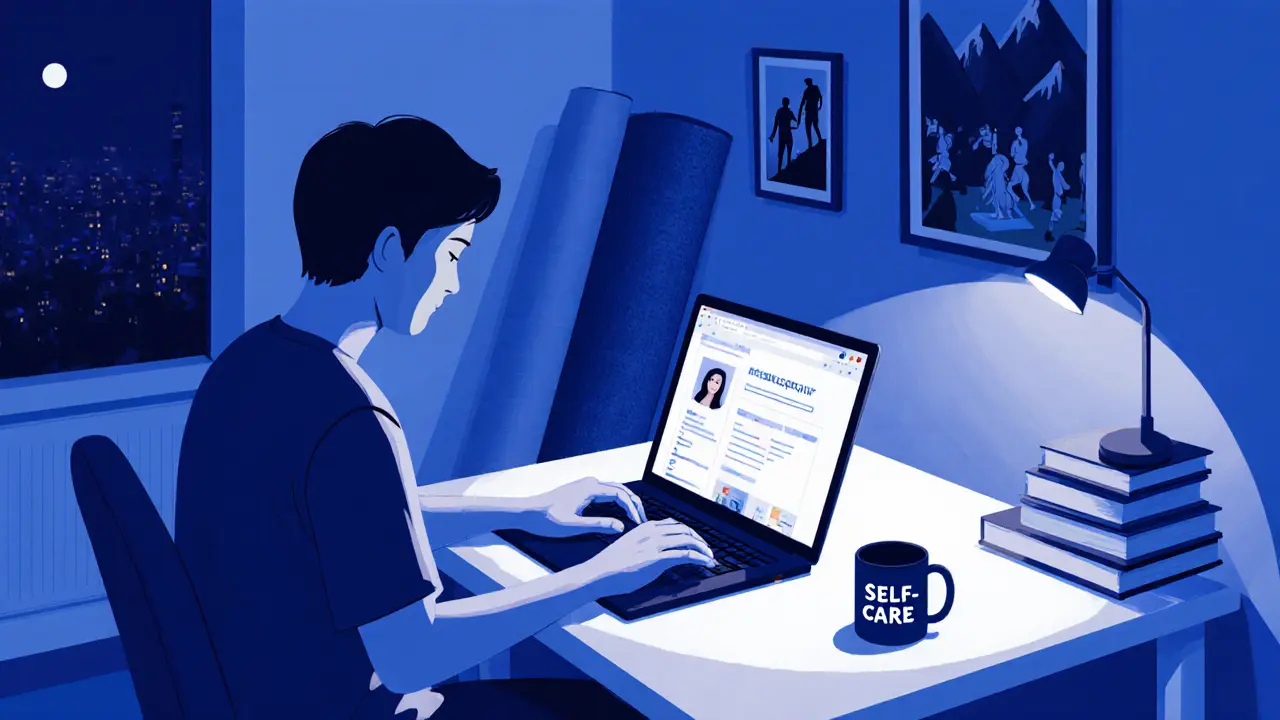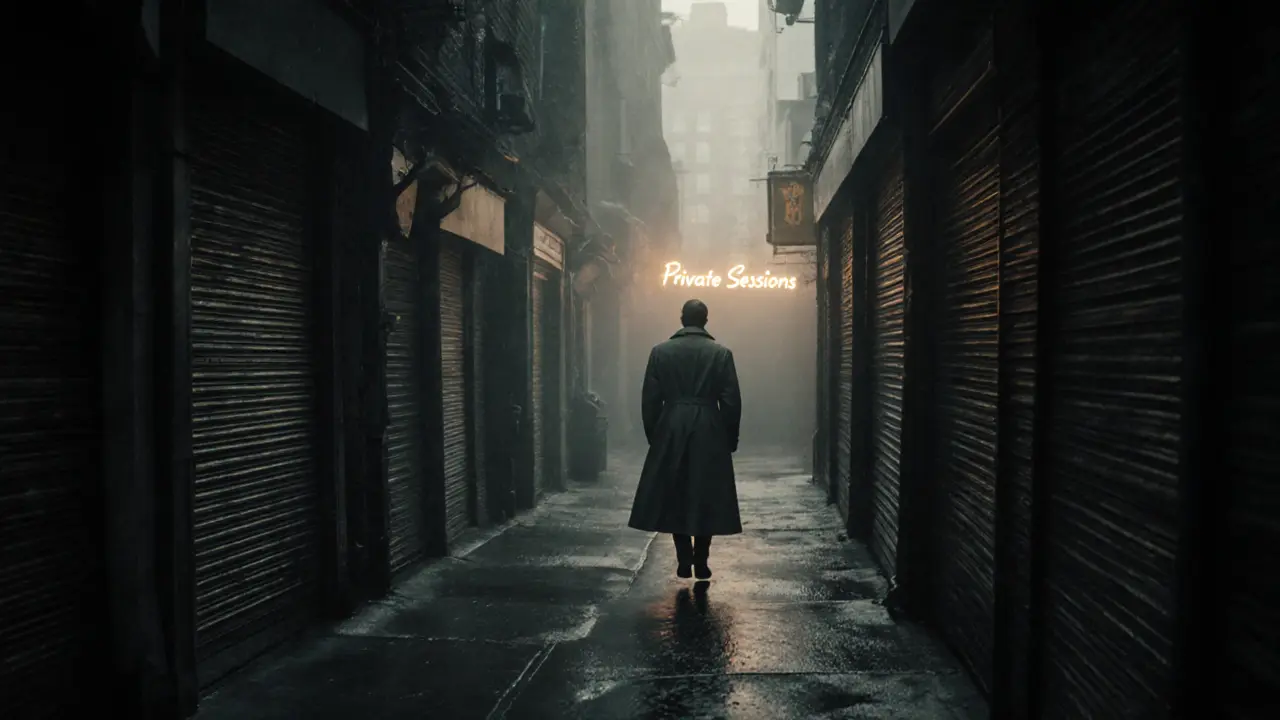For decades, the idea of an escort in London was shrouded in secrecy, stigma, and fear. Talk of escorts meant whispered rumors, shadowy figures, and moral panic. But today, if you walk through Soho or sit in a café in Notting Hill, you’ll hear people talk about escorts the same way they talk about personal trainers or therapists-quietly, matter-of-factly, without judgment. What changed? Not just the law. Not just technology. It was the slow, steady shift in how society sees independence, intimacy, and work.
From Hidden to Heard
In the 1980s and 90s, escorts in London operated in silence. Ads appeared in underground magazines. Meetings happened in hotel lobbies after dark. Police raids were common. Being identified as an escort could cost you your job, your family, even your housing. The stigma wasn’t just social-it was legal. The 1956 Street Offences Act made soliciting illegal, and even offering companionship could land someone in court.
Then came the internet.
By the early 2000s, websites like AdultWork and EscortList gave people control. No more pimps. No more street corners. Escorts could set their own hours, prices, and boundaries. They built profiles, collected reviews, and chose clients. Suddenly, the work looked less like crime and more like entrepreneurship. A 2017 study by the London School of Economics found that 68% of independent escorts in the UK reported higher job satisfaction than in previous roles-often because they finally had autonomy over their time and safety.
Why People Hire Escorts
People still assume escorts are only about sex. That’s outdated.
Ask a 42-year-old accountant in Wimbledon why he hires an escort once a month. He’ll say it’s because he’s lonely. He’s divorced. His kids live abroad. He doesn’t want to date. He just wants someone to talk to over dinner, hold his hand at the theater, or sit quietly with him after a long week.
Ask a 28-year-old woman in Camden why she books an escort for a date night. She’ll say she’s tired of apps. She’s done with ghosting. She wants someone who shows up, listens, and doesn’t ask for her Instagram handle.
It’s not about sex. It’s about connection. A 2023 survey by the UK-based advocacy group UKSA found that 73% of clients in London sought companionship, not sexual services. The rest were clear about boundaries-many explicitly stated they didn’t want physical contact at all. The escort industry in London has quietly become a space for emotional labor, not just physical.

Legal Gray Zones and Real Safety
London doesn’t ban escorting. It bans soliciting, brothel-keeping, and pimping. That means an individual working alone from their apartment is technically legal. But the law doesn’t protect them. Police still show up if a neighbor complains. Landlords evict tenants if they suspect “immoral activity.” Banks freeze accounts if they see regular payments from clients.
That’s why many escorts now use platforms like OnlyFans or private membership sites. They post photos, write blogs, host virtual coffee chats. Some offer massage, yoga, or even career coaching. They rebrand. They adapt. They turn what society once called “vice” into “self-care services.”
The real danger isn’t the work-it’s the lack of legal recognition. Without labor rights, escorts can’t report abuse without fear of arrest. They can’t get insurance. They can’t open business accounts. In 2022, a woman in Hackney was assaulted by a client. She didn’t call the police because she knew they’d question her more than him. That’s the cost of invisibility.
Generational Shifts
Younger people don’t see escorts the way their parents did.
A 2024 survey by YouGov found that 56% of Londoners under 35 believe escorting should be decriminalized. Among those who knew someone who had worked as an escort, that number jumped to 78%. College students talk about it in sociology classes. Podcasts feature former escorts as guests. Instagram accounts like @londoncompaniondiaries have over 200,000 followers-not for titillation, but for honest stories about burnout, boundaries, and self-worth.
Even the media has changed. The BBC’s 2023 documentary “The Business of Companionship” didn’t sensationalize. It showed a woman in her 50s who used to be a nurse, now working as an escort to pay for her daughter’s university tuition. No drama. No tears. Just facts.

What This Says About London
London has always been a city of contradictions. It’s where billionaires sip champagne in Mayfair and students sleep in shared flats in Peckham. But now, it’s also where people are redefining what it means to be human.
The rise of the escort in London isn’t about sex. It’s about dignity. It’s about recognizing that loneliness is a public health crisis. It’s about accepting that intimacy doesn’t always come with romance, marriage, or family. It’s about letting people choose how they connect-with boundaries, with consent, with respect.
Other cities are watching. Berlin, Amsterdam, and even New York have moved toward decriminalization. London hasn’t yet. But the conversation has shifted. People are no longer whispering. They’re asking: Why are we punishing someone for offering what so many of us secretly need?
It’s Not About the Job. It’s About the Person.
Behind every escort in London is a story. A single mother. A graduate student. A retired teacher. A non-binary artist. A man recovering from trauma. They don’t all look the same. They don’t all want the same thing.
What they share is a desire to be seen-not as a stereotype, not as a scandal, not as a criminal-but as a person making choices in a world that still doesn’t make it easy to survive on your own terms.
The real change isn’t in the law. It’s in the quiet moments: when a neighbor stops staring. When a friend says, “I didn’t know you did that.” When a child doesn’t blush when they hear the word. That’s when society starts to heal.
London’s escorts aren’t breaking rules. They’re revealing them.
Is it legal to be an escort in London?
Yes, but with major restrictions. It’s legal for an individual to offer companionship or sexual services independently. However, soliciting in public, running a brothel, or having someone else manage your work (pimping) is illegal. Many escorts avoid legal risk by working online, using private platforms, and never meeting clients in public places.
Do most escorts in London provide sexual services?
No. A 2023 survey by the UK Sex Workers’ Advocacy group found that only 27% of clients in London requested sexual contact. The majority sought companionship-dinner dates, conversation, attending events, or emotional support. Many escorts explicitly state in their profiles that they do not offer sex.
Why do people hire escorts in London?
People hire escorts for many reasons: loneliness, lack of social skills, busy lifestyles, cultural barriers, or simply wanting to avoid the pressure of dating apps. Many clients are married, divorced, or elderly. Others are young professionals who feel disconnected. The common thread is a desire for non-judgmental, consensual human connection.
Are escorts in London safe?
Safety varies. Independent escorts who screen clients, meet in public or controlled environments, and use digital platforms tend to be safer. But because the work exists in a legal gray zone, many can’t report abuse without risking arrest or eviction. Lack of legal protection remains the biggest risk.
How has social media changed the escort industry in London?
Social media gave escorts control. Instead of relying on agencies or street work, they now build personal brands. Platforms like Instagram, OnlyFans, and private websites let them set boundaries, share their stories, and connect directly with clients. Many now offer non-sexual services like coaching, therapy, or virtual companionship, reshaping public perception.


